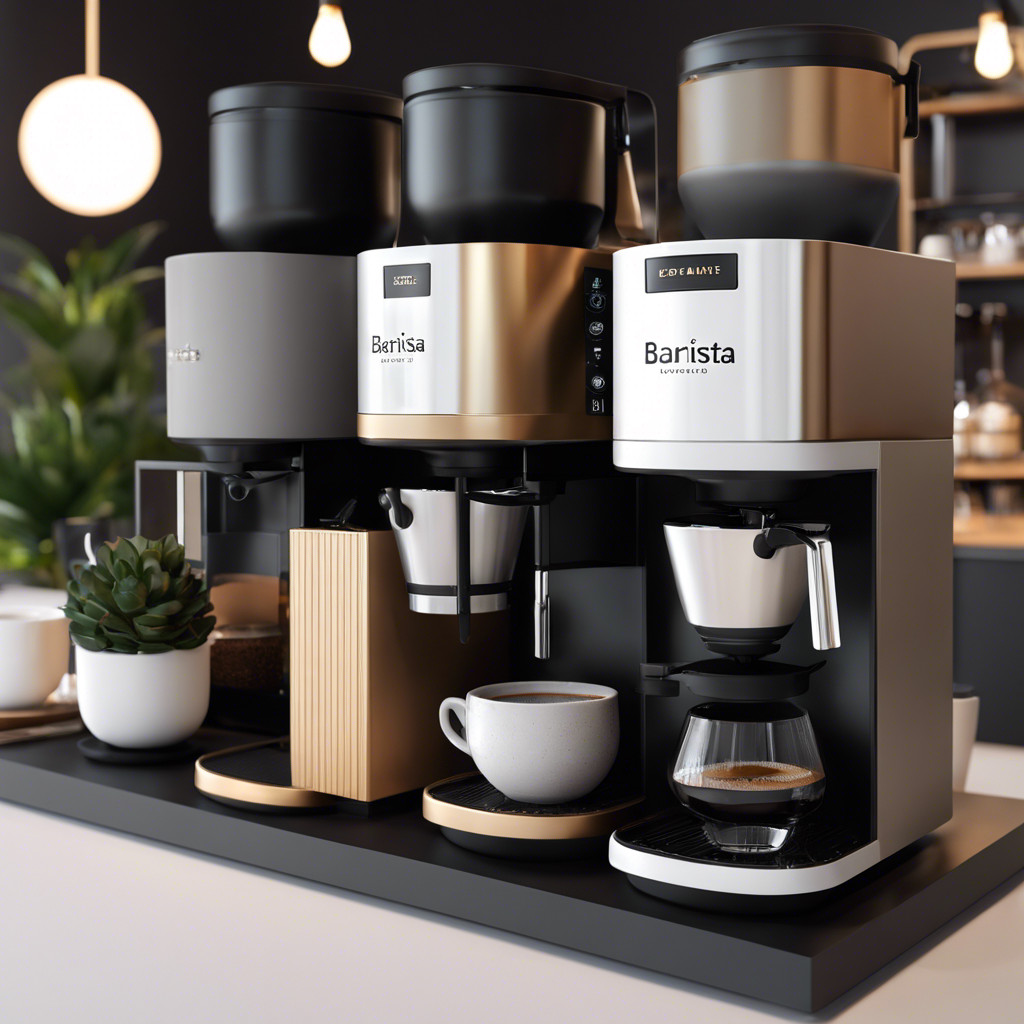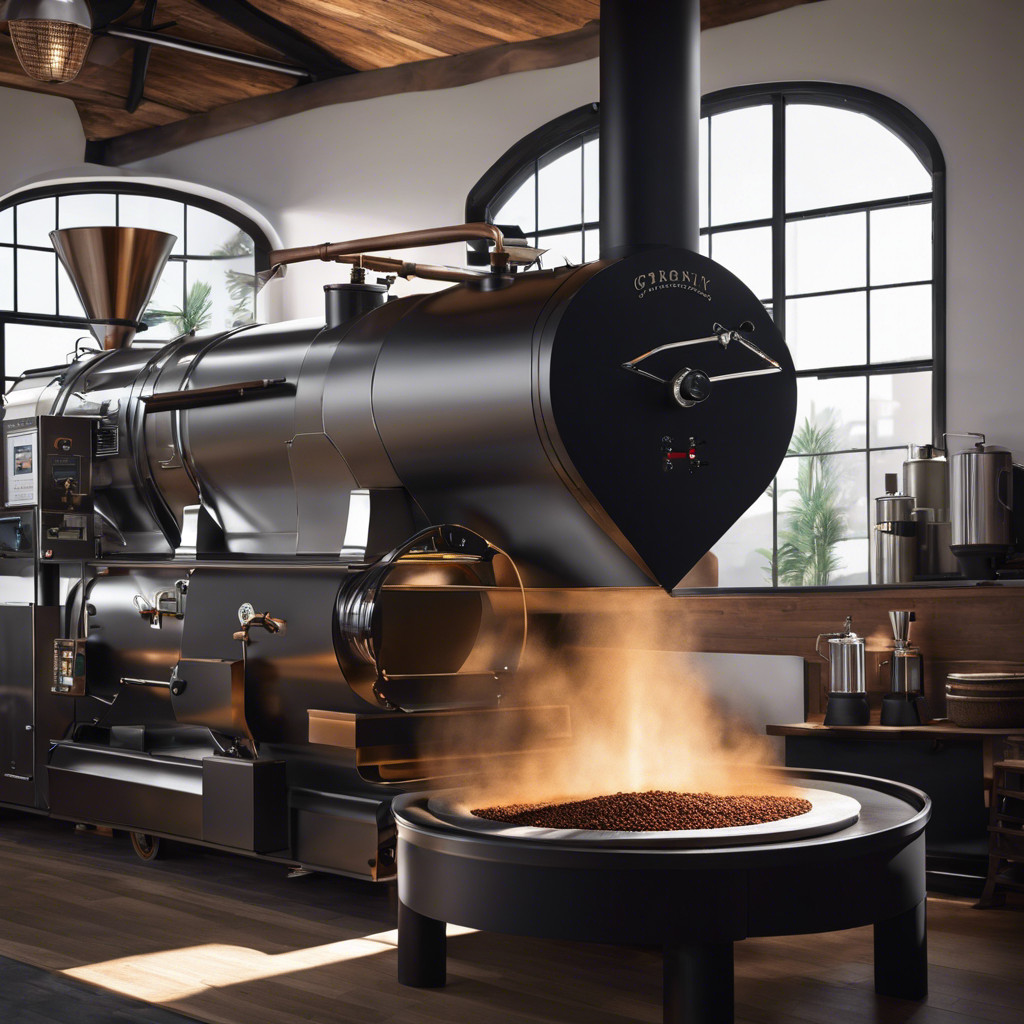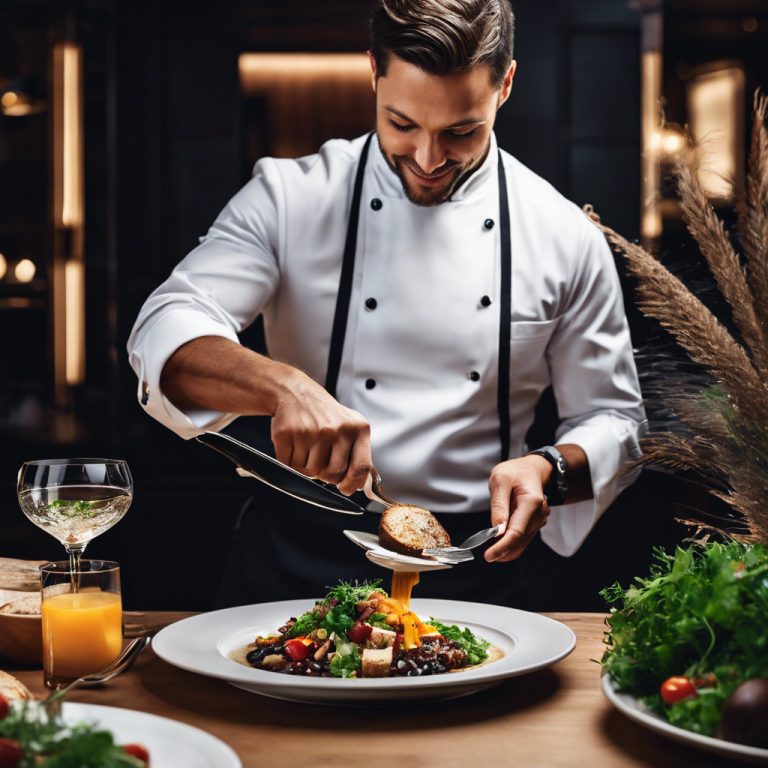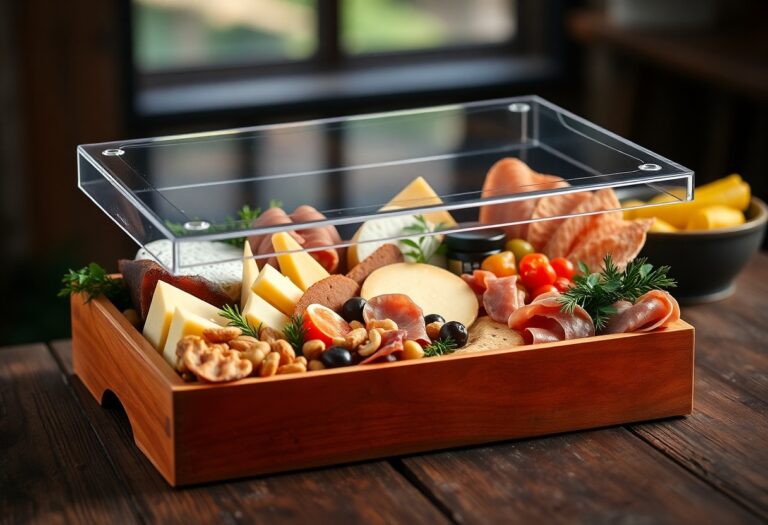Specialty Coffee Roasting: Boosting Small-scale Cafes and Restaurants?
Coffee has emerged as an integral part of people’s lives around the world. As the demand for high-quality coffee soars, small-scale cafes and restaurants are increasingly turning to specialty coffee roasting to differentiate themselves from the competition. In this blog post, we explore the benefits and drawbacks of specialty coffee roasting for small-scale establishments, backed by recent studies and real-life examples.

Specialty coffee roasting has gained significant popularity in recent years, and for good reason. It offers a unique and high-quality coffee experience that resonates with discerning coffee enthusiasts. For small-scale cafes and restaurants looking to stand out in a saturated market, specialty coffee roasting presents an excellent opportunity to elevate their beverage offerings and attract a loyal customer base.
So, what exactly is specialty coffee roasting? In simple terms, it refers to the process of roasting high-quality coffee beans sourced from specific regions or individual farms. These beans are carefully selected and graded based on factors like bean size, density, moisture content, and absence of defects. Specialty coffee roasters pay meticulous attention to detail, ensuring the roast level brings out the best flavors and aromas of the beans.
One of the primary advantages of specialty coffee roasting is the ability to customize the roasted beans according to the café or restaurant’s preferences. Roasters can experiment with different roast profiles, aiming to highlight unique flavor notes and complexities in the coffee. This customization allows small-scale establishments to curate a coffee menu that resonates with their brand identity and caters to their target audience’s taste preferences.

Additionally, specializing in coffee roasting allows cafes and restaurants to foster direct relationships with coffee producers. By sourcing beans directly from farms or cooperatives, businesses can support ethical and sustainable farming practices, ensuring fair prices for farmers and maintaining the quality and traceability of the coffee. These direct relationships also enable establishments to communicate the story behind each coffee to their customers, creating a more immersive and engaging experience.
Investing in specialty coffee roasting requires certain considerations. Firstly, small-scale establishments need to invest in the right roasting equipment, such as small batch roasters, that fit their capacity requirements. These machines provide control over the roast process, enabling roasters to ensure optimal heat distribution and consistency.
Additionally, it’s vital to develop a strong understanding of coffee roasting techniques, including profiles, roast levels, and degassing. Various factors, such as roast duration and temperature, can significantly impact the final flavor of the coffee. Regular experimentation and cupping sessions are crucial in honing roasting skills and consistently producing high-quality beans.
Building a successful specialty coffee roasting operation also requires a focus on storage and freshness. After roasting, coffee beans release carbon dioxide and volatile compounds for a few days. This process, known as degassing, is crucial as it allows the coffee to develop balanced flavors. However, it is essential to store the beans properly during this phase to ensure optimal freshness. Investing in appropriate packaging and understanding optimal storage conditions will help small-scale establishments maintain the quality of their roasted coffee.
Finally, promoting the specialty coffee offerings is crucial for customer engagement and loyalty. Sharing the story of the coffee beans, their origin, and the involved farmers can create a deeper connection between customers and their cup of joe. Providing tasting notes and suggesting suitable brewing methods can further enhance the coffee experience for patrons.
Specialty coffee roasting presents an incredible opportunity for small-scale cafes and restaurants to differentiate themselves in a competitive industry. By investing in the right equipment, building relationships with producers, developing roasting skills, and promoting their unique coffee offerings, these establishments can establish a reputation for excellence and become go-to destinations for coffee aficionados. So, if you’re a café or restaurant owner, don’t hesitate to explore the world of specialty coffee roasting and unlock a whole new level of coffee enjoyment for your customers.
The Advantages of Specialty Coffee Roasting
1. Exceptional Taste and Quality
Specialty coffee roasting aims to bring out the unique flavors and characteristics of coffee beans. By roasting their own beans, small-scale cafes and restaurants can have full control over this process, ensuring a consistent, fresh, and flavorful cup of coffee. The resulting product can attract coffee connoisseurs who appreciate the nuanced taste and quality, setting the establishment apart from the average coffee shop.
Real-life example: “Cafe Artisans,” a small-scale cafe in a bustling urban neighborhood, experienced a significant increase in customer retention after transitioning to roasting their own coffee beans. Patrons admired the rich flavors and complexity of their coffees, leading to a loyal customer base and positive word-of-mouth.
2. Profitability
By directly roasting their own beans, small-scale cafes and restaurants can significantly reduce expenses in the long run. Buying green coffee beans and investing in a roasting machine may seem like a substantial upfront cost, but it allows owners to bypass costly middlemen and maintain profit margins. Moreover, offering a unique specialty coffee experience often justifies slightly higher prices, which offset the initial investment.
3. Enhanced Branding and Storytelling
Roasting their own coffee beans enables small-scale establishments to create a unique brand story and connect with customers on a deeper level. By showcasing a commitment to quality and artisanal craft, these businesses can cultivate a distinct identity and build a strong community of coffee lovers. Customers today crave authenticity and are often willing to pay a premium for coffee that has a genuine story behind it.
Drawbacks and Considerations
1. Initial Investment
The cost of purchasing a coffee roaster and sourcing high-quality green beans can pose a hurdle for small-scale establishments. However, exploring financing options or partnering with local coffee roasters for initial batches can help mitigate this challenge.
2. Technical Expertise
Roasting coffee demands knowledge and skill. Small-scale cafes and restaurants must either hire a seasoned roaster or invest in training their staff to ensure consistency and excellence in roasting. While this might take time and resources, the long-term benefits outweigh the initial learning curve.
3. Space and Equipment Requirements
Coffee roasters require a dedicated space due to ventilation needs and the potential volume of beans being roasted. Small establishments may need to reconfigure their layout or opt for smaller-scale, more compact roasting equipment. Balancing space and equipment constraints is crucial in adopting specialty coffee roasting.

Specialty coffee roasting offers significant advantages for small-scale cafes and restaurants seeking to set themselves apart in an increasingly competitive market. The ability to offer exceptional coffee with unique flavors and quality enhances customer loyalty and opens new revenue streams. Despite potential challenges such as cost and technical expertise, the potential for increased profitability and strong brand storytelling make specialty coffee roasting an exciting opportunity worth exploring.
By embracing specialty coffee roasting, small-scale establishments can unlock a world of flavors and elevate the coffee experience, all while establishing themselves as leaders in the coffee industry. So, why not take the plunge and roast your way to success?




